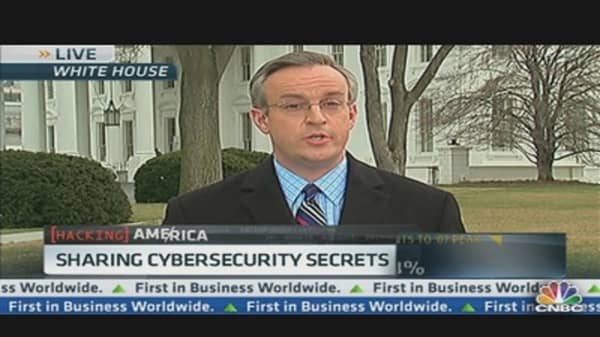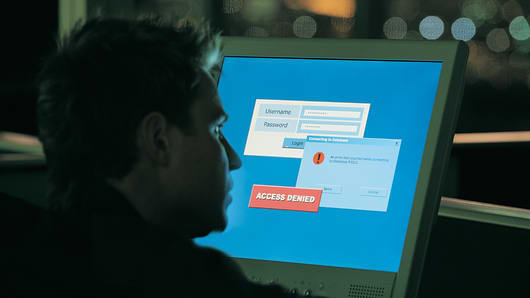Nonetheless, the effort represents a sweeping new application of classified information in the private sector, and sources say it has caused some concern among private firms that it could lead to other, mandatory efforts to police private U.S. corporate intellectual property and communications.
AT&T declined to comment for this article. CenturyLink confirmed its participation in the plan, but referred questions about it to the government.
(Read More: Chinese Hacking Defense 'Hard to Believe': Security Expert)
The role of the telecommunications carriers is a hybrid of public and private cooperation. In return for participating in the program, the carriers get access to classified information they can use to build a potentially profitable business. "They're not doing this pro bono," said Michael Brown, a retired Navy rear admiral who is now an executive at the computer security firm RSA. "In a year, I would expect a very heavy demand signal from the private sector."
The program is built on an earlier effort to use similar tactics to protect U.S. defense contractors from cyberintrusions. Companies that want access to the higher level of cyberprotection must qualify through a two-step process. First, the government must determine that the company is part of U.S. critical infrastructure and the firm must be vetted for threats to U.S. national security or operational security.
Still, a government official said that the new program will be potentially open to hundreds—if not thousands—of companies.
The model for the new program is a Department of Defense initiative that began in May of 2012 to protect companies in the defense industrial base. A department spokesman said that 17 companies volunteered to provide time, resources and manpower in a pilot program that began in 2010.
The pilot program was not an unmitigated success. "At the end of the operational pilot, one of the commercial service providers withdrew," the defense spokesman said in an email to CNBC. "During the operational testing of the pilot, five of the 17 [defense industrial base] companies chose to withdraw and reallocate their resources to other corporate priorities."





